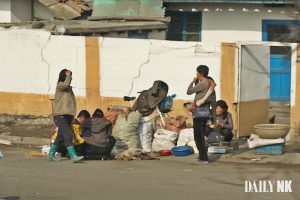
There is an increasing number of North Koreans who are defecting from the country for economic reasons, according to sources inside the country.
While North Korea’s economic woes have not yet reached levels seen during widespread famine of the mid-to-late 1990s, there are more and more North Koreans considering defection due to fears that a similar situation could occur again.
“More North Koreans are asking about how to get to South Korea through China than before,” a source in North Korea (province redacted for security reasons) told Daily NK.
Such questions are asked discreetly, because even the act of inquiring about leaving the country can result in punishment.
The Korea Hana Foundation’s 2017-2018 survey of North Korean defectors found that most defectors hail from North Hamgyong Province (63.4%), followed by Ryanggang Province (16.6%). These provinces are close to China, making it easier for local residents to defect across the border and ultimately reach South Korea.
In the past, most defectors in South Korea brought their family members to the country through the use of brokers.
However, this has changed recently. There are an increasing number of North Koreans living in the country’s inner regions – far from the Chinese border – who are attempting to defect, even though they have no relatives in either China or South Korea, the source said.
The primary reason behind this change is thought to be North Korea’s economic difficulties.
“People can eke out a living with the food grown on private plots of land, but many find it intolerable just surviving on corn,” said the source. “Nobody has any money left, so there’s a lot of concern (about the economy).”
International sanctions have led to a drastic fall in imports and some factories in the country have been forced to close their doors. This has led to a rise in unemployment. Business people have also experienced a fall in profits due to difficulties in conducting trade and smuggling activities.
“There’s been a drastic reduction in goods flowing into the country. Smuggling activities have fallen, and business people don’t have anything to sell in the markets so their businesses are floundering,” a source in South Pyongan Province reported.
“People are considering defection as a way to mitigate the economic difficulties they are facing.”
Yet because of the high costs associated with defection, most North Koreans are unable to turn their thoughts into action. A defection across the border into China costs at least 1.2 million won, making it difficult for most North Koreans to even consider.
Some are aware of organizations and individuals in the US or South Korea focused on helping them defect from the country.
“They give up because of the cost, but continue to inquire because they know there are groups out there who can help,” the South Pyongan Province-based source reported.
“If the current economic difficulties persist, more and more North Koreans will continue to want to leave the country.”

















